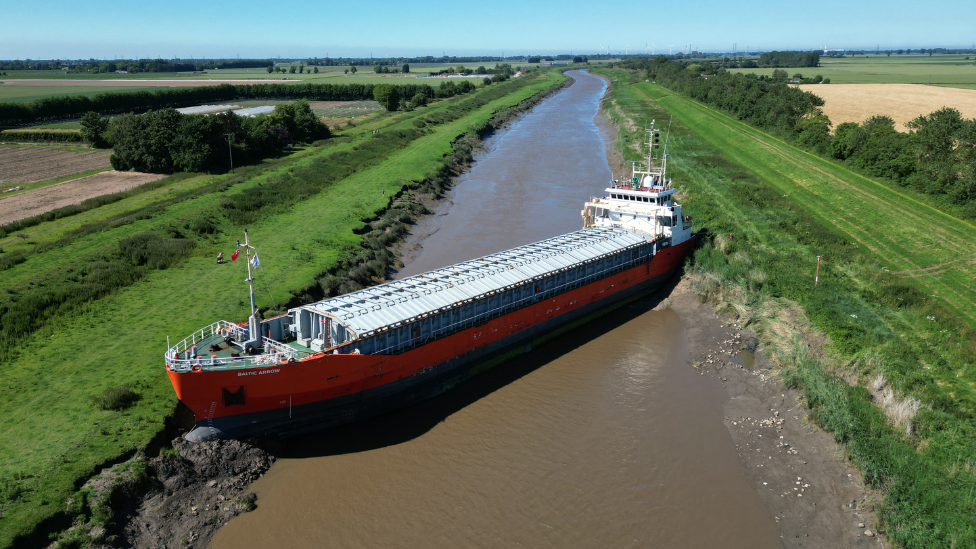The inland harbour of the real ships of the Fens
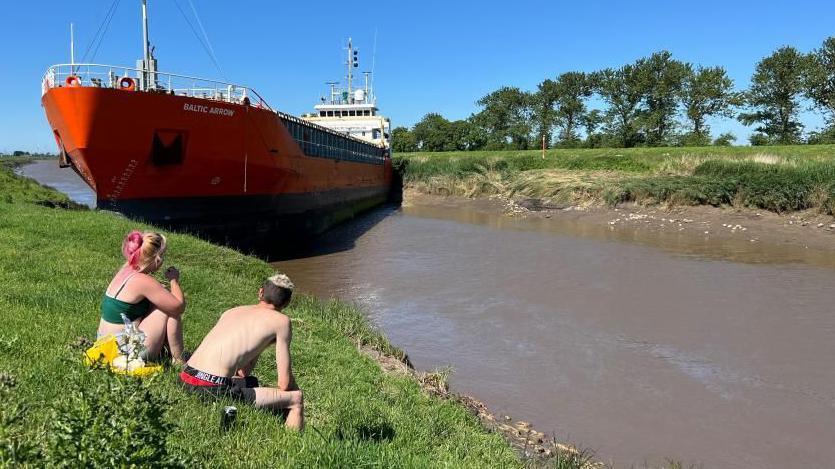
The Baltic Arrow ran aground in the River Nene while carrying timber to Wisbech
- Published
Visitors to East Anglia are often told to look out for the "Ship of the Fens".
That is the nickname of the 11th Century Ely Cathedral, external, which dominates its flat Cambridgeshire surrounds like a ship on the horizon.
But people were reminded this week that actual ships really do sail through the fenlands of Norfolk and Cambridgeshire when a cargo vessel got wedged in a river.
Cargo ships have been sailing into The Wash and then down the River Nene to the inland Port of Wisbech, external, Cambridgeshire, for centuries - and the Baltic Arrow was not the first to come a cropper.
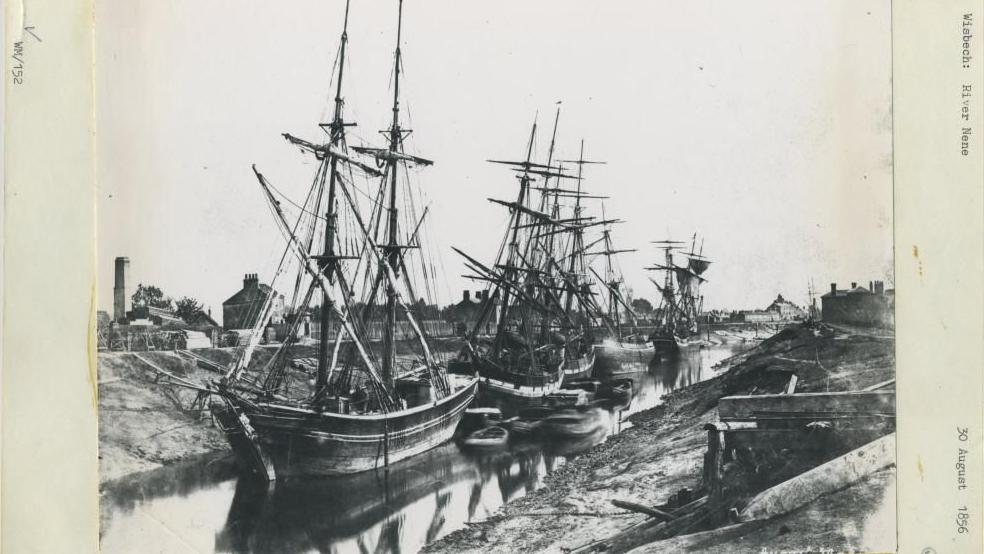
Ships of the Fens: Sailing vessels line up on the River Nene at Wisbech in 1856
The ship's captain reported "grounding" in the River Nene en route to Wisbech at about 08:49 BST on Tuesday.
The 80m (262ft) cargo vessel was sailing from Riga, Latvia, with a cargo of timber.
It was freed at 21:52 on Tuesday and sailed into Wisbech at 22:30 with no injuries reported.
Local historians estimate ships sail about 12 miles (19km) down the tidal Nene, which has been cut at various points over the years to make navigation easier, before reaching the Port of Wisbech.
Cargo vessels normally have pilots on board to guide them down the river.
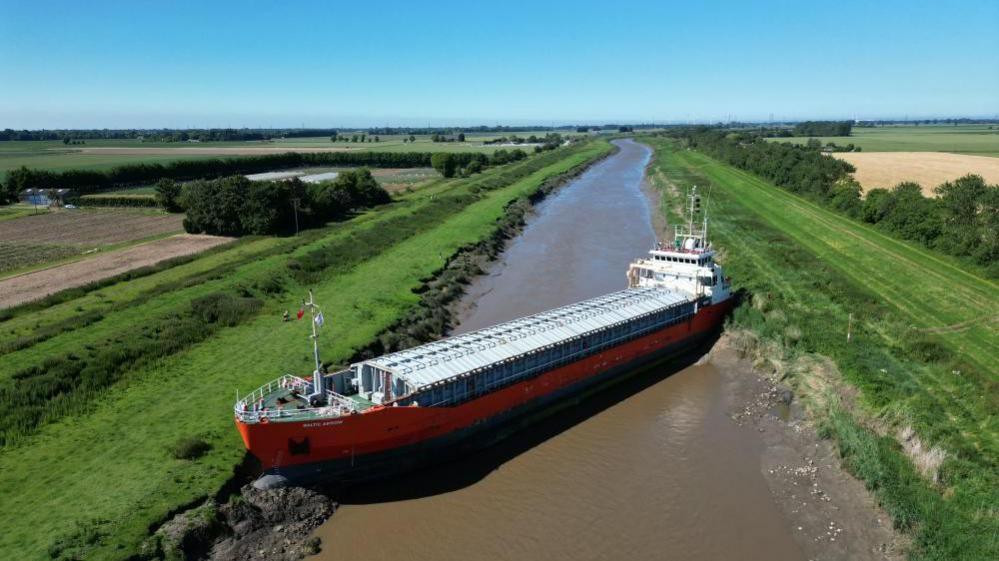
The Baltic Arrow was freed after 13 hours
Fenland District Council, external, which has its head offices in March, Cambridgeshire, about 25 miles (40km) from The Wash coast, is the statutory harbour authority.
"Located on the River Nene, Wisbech Port and Yacht Harbour is Cambridgeshire's only gateway to the sea," the council explains on its website.
"It offers a wide variety of marine services as well as leisure mooring facilities."
The council describes Wisbech as a "busy commercial shipping port" and says vessels up to 83m (272ft) and 13m (43ft) wide are "welcome".
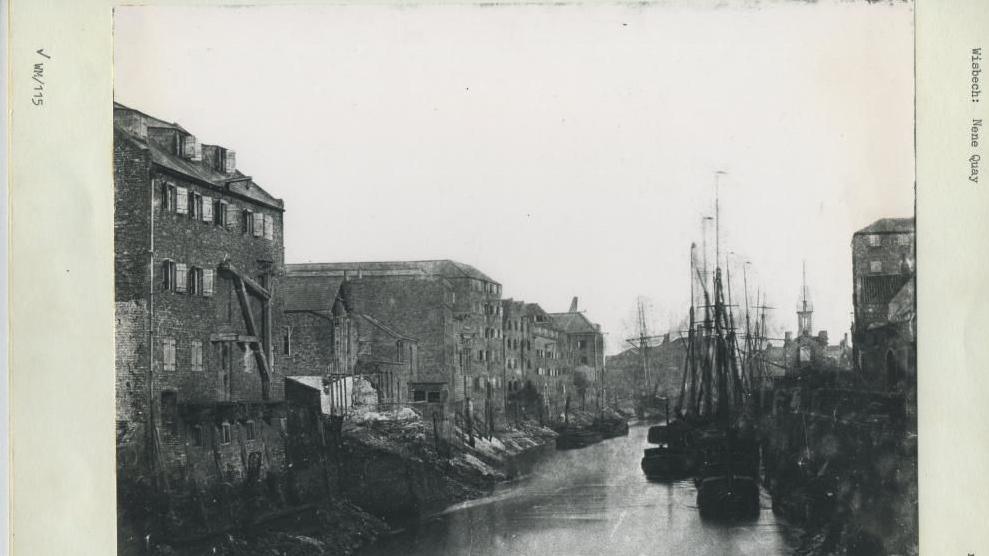
Sailing ships anchored at Nene Quay, Wisbech
Robert Bell, curator of the Wisbech & Fenland Museum, external, said there was probably a port at Wisbech in Norman times, nearly 1,000 years ago.
Ely Museum's website, external explains how the Fens were traditionally flat wetlands with islands of higher land. For that reason, Ely is sometimes known as The Isle of Ely.
Drainage began about 400 years ago and continued for hundreds of years.
Fenland council says Wisbech has "served as a port since medieval times".
"After the estuary of the River Ouse became silted up, it was diverted into the sea at Lynn," its website explains.
"This led to the construction of the present course of the River Nene from Peterborough to The Wash."
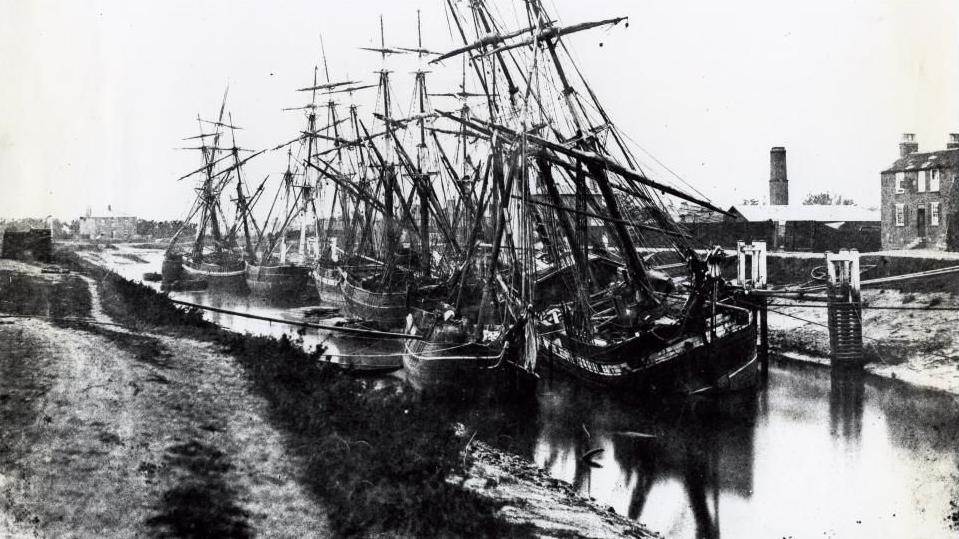
Sailing ships in a line at the Port of Wisbech
Fenland said drained marshes provided rich farmland and brought prosperity to Wisbech and its port.
"It was the centre of a thriving agricultural region and an important trading centre - with shipments of corn and oilseed rape to the coast and continent, and imports which included coal from the north and timber from the Baltic," adds the council website.
"All this prosperity led to the magnificent Georgian architecture of the buildings along the Brinks, with North and South Brink deemed two of the finest Georgian streets in England."
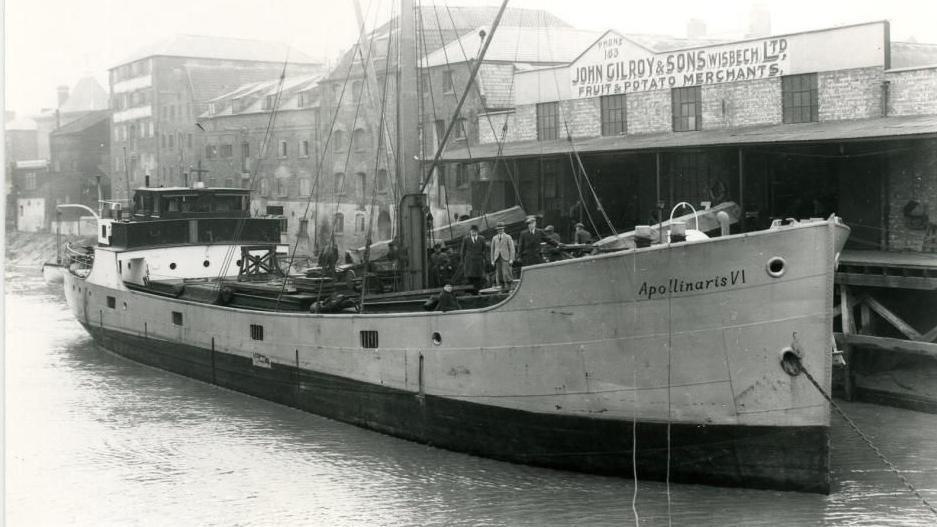
A ship sits alongside Gilroy's warehouse in Wisbech in 1934
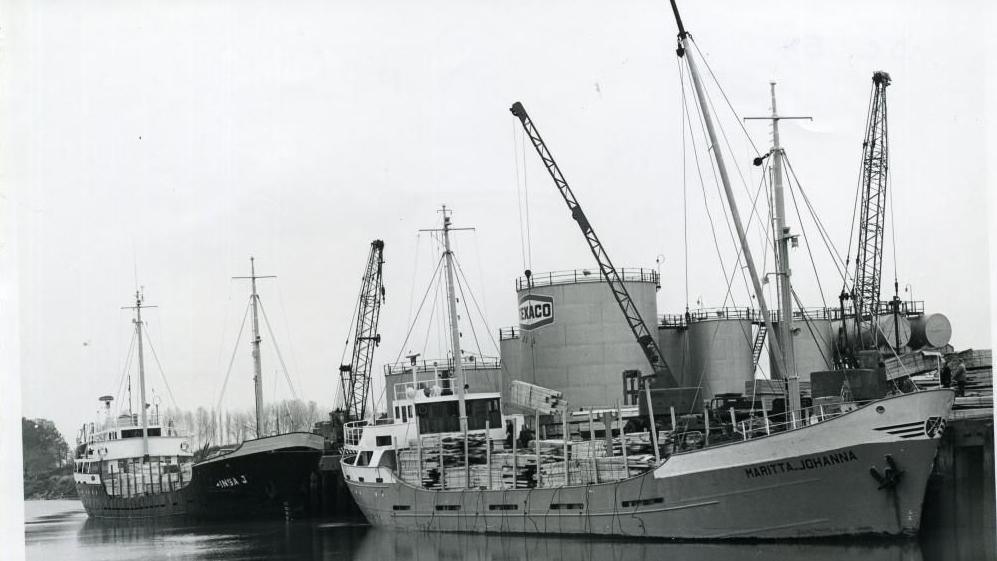
A ship unloads cargo at Wisbech in the 1960s
A company called Port of Wisbech Ltd has held a "stevedoring" licence from the district council, which owns the quayside, for 20 years.
The company owns and operates two ships - Baltic Express and Baltic Arrow which carry wood and other cargo from Riga, Latvia, on the Baltic Sea, to Wisbech.
Earlier this year, the company said it had started handling shipments of a lightweight "expanded clay aggregate".
Crossings from Riga to Wisbech typically take five days, the company website explains.
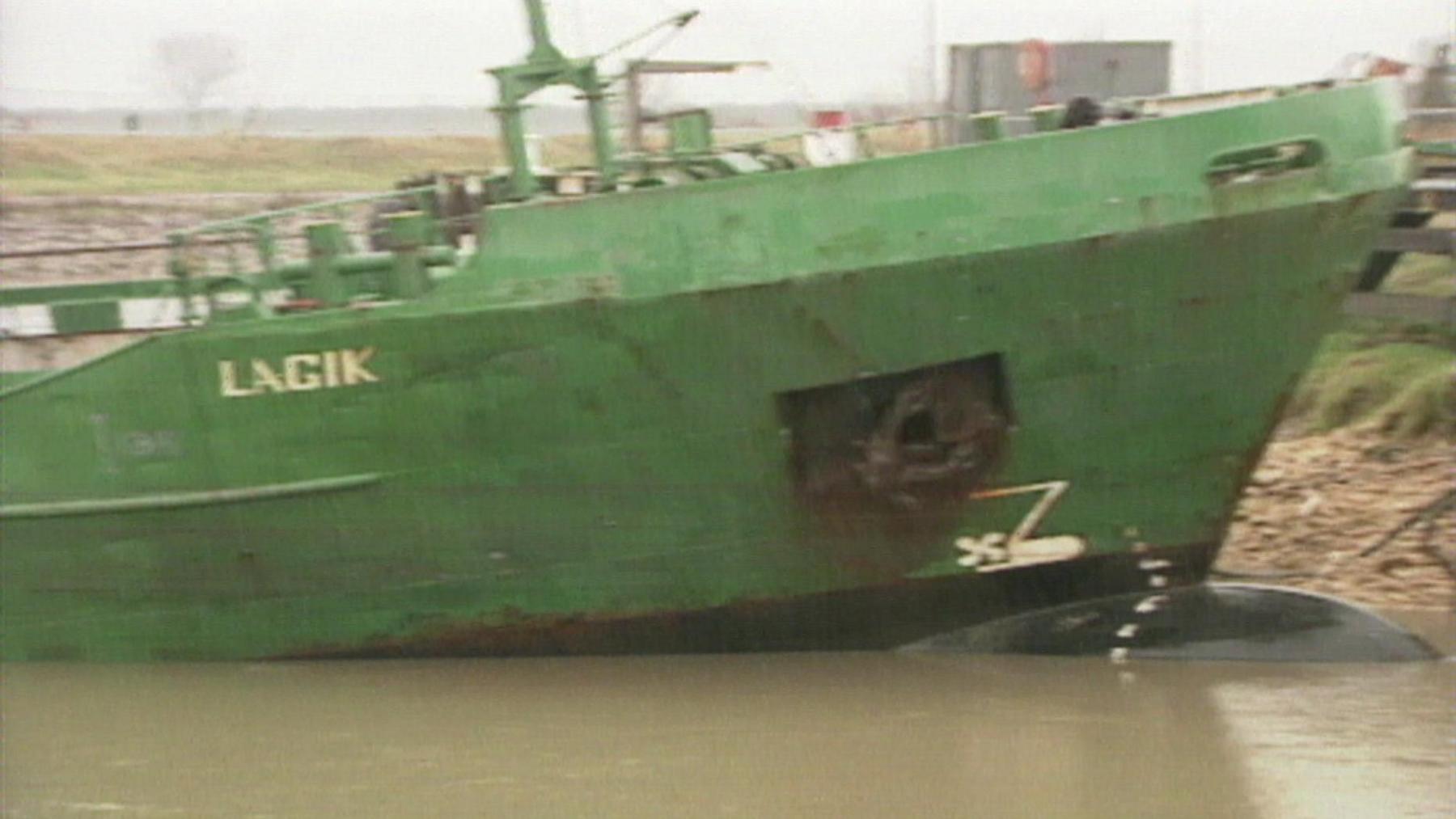
Lagik became wedged in the Nene in December 2000 and blocked Wisbech Port for 44 days
Other vessels have also got stuck in the Nene.
A cargo ship called Lagik grounded at Sutton Bridge, external, Lincolnshire, on 13 December 2000.
Lagik was carrying steel and became wedged.
The ship, later declared a "constructive total loss", blocked the Nene and closed the Port of Wisbech for 44 days.
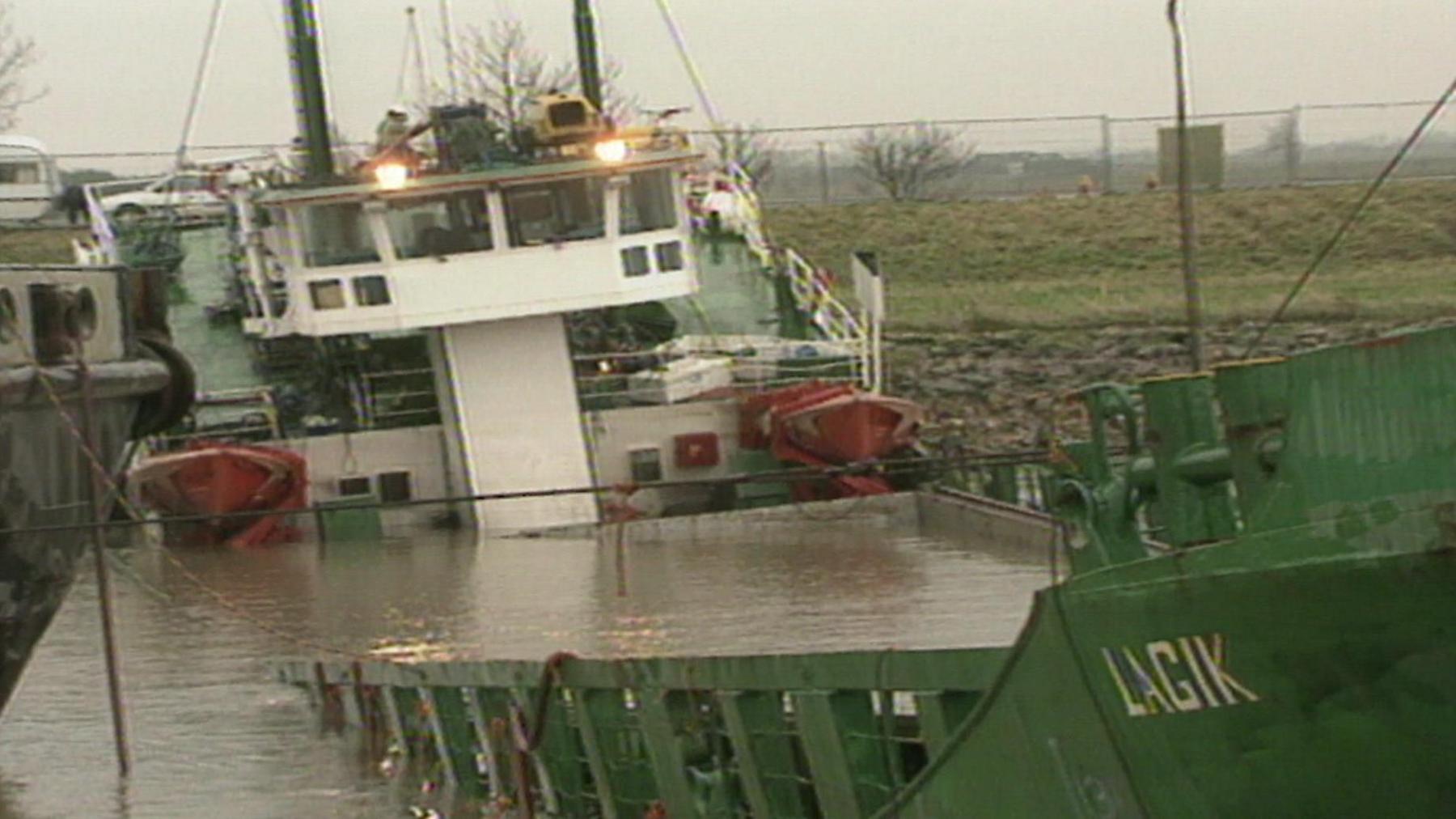
Lagik was declared a loss and the last section of the ship was removed from the river in January 2001
Two fishery patrols vessels and a number of fishing and recreation craft were stranded in Wisbech.
A salavage operation began in late December 2000
The last section of Lagik was removed from the river in late January 2001.
Follow Cambridgeshire news on Facebook, external, Instagram, external and X, external. Got a story? Email eastofenglandnews@bbc.co.uk, external or WhatsApp us on 0800 169 1830
More on the Story
- Published28 June 2024
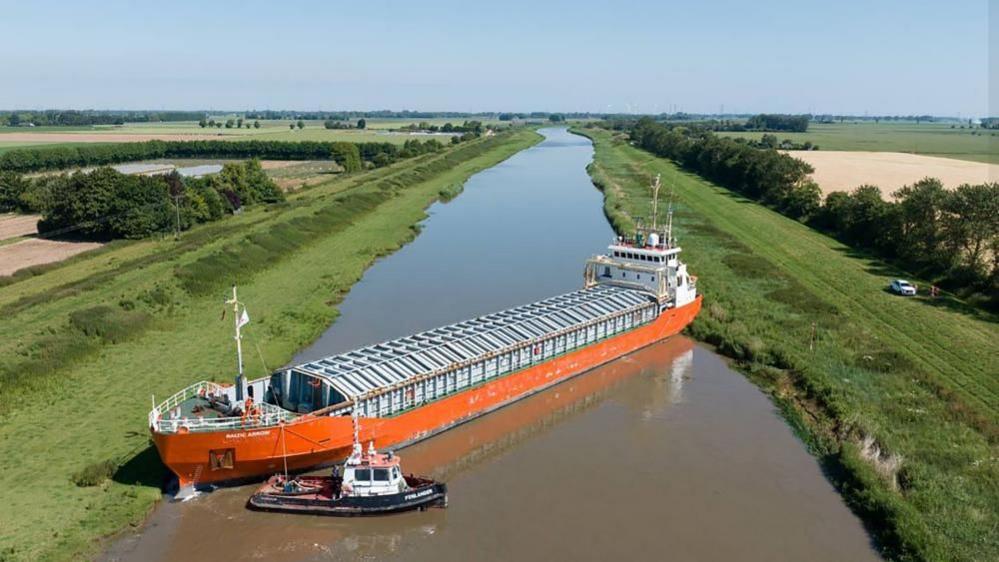
- Published26 June 2024
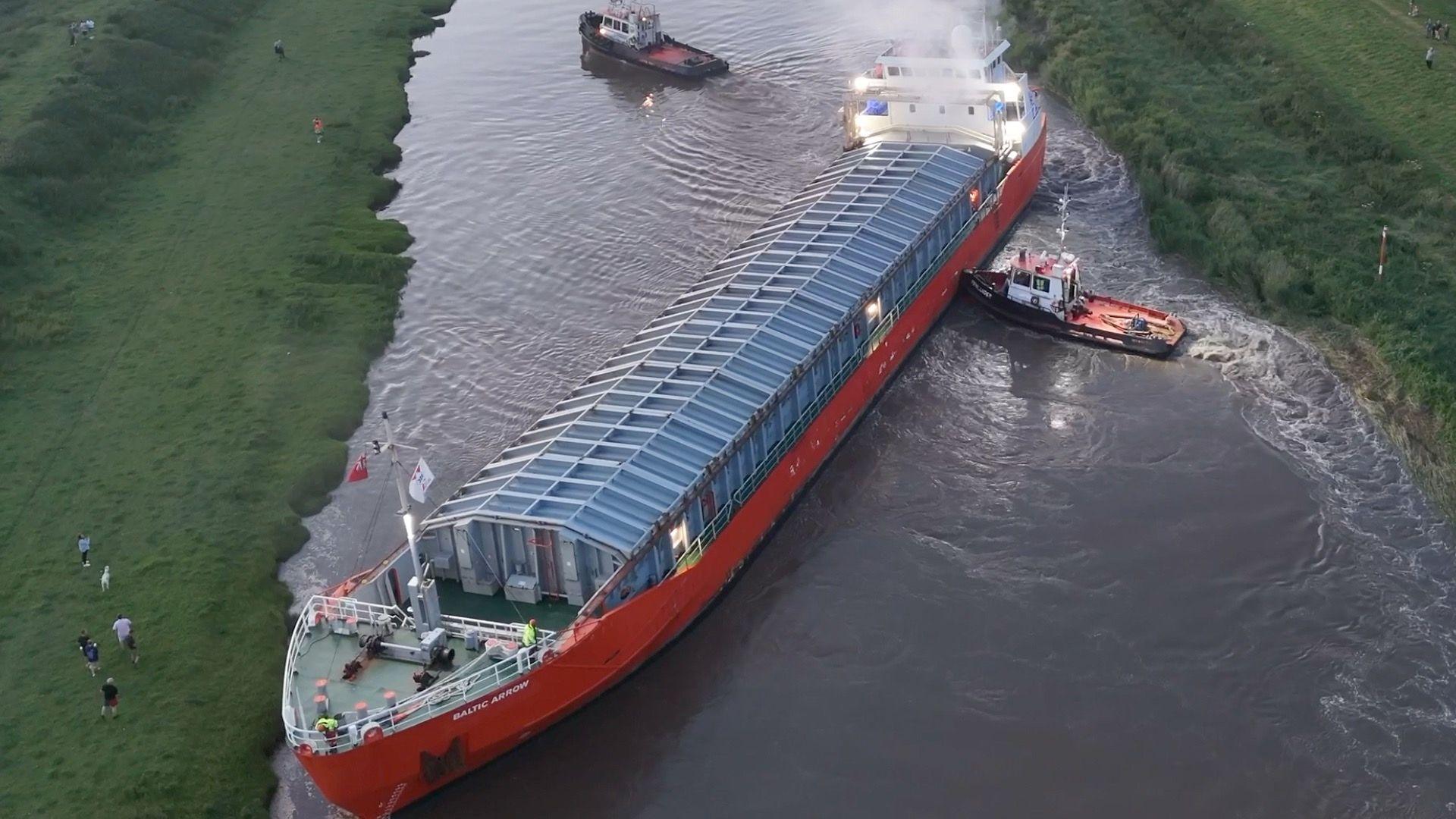
- Published25 June 2024
